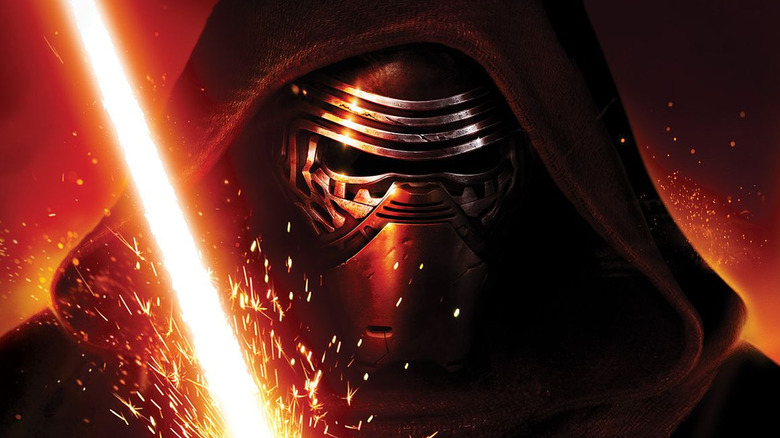The Truth Behind ESRB's New Rating
The Entertainment Software Ratings Board, a.k.a. the ESRB, has made a few announcements regarding loot boxes in games. There will be a new disclaimer assigned to games featuring loot boxes and other microtransactions, which will read "In-Game Purchases (Includes Random Items)."
As explained in a post to the ESRB's official blog, this is not an entirely new concept. Back in 2018, the ESRB began listing games with the Interactive Element "In-Game Purchases," which lets consumers know that "a game offers the ability to purchase additional items without leaving the game." In other words, this covers anything that can be bought in the game, rather than purchased as a separate DLC or add-on.
As the name for the new Interactive Element would suggest, the ESRB will now be letting gamers know which games feature purchasable Interactive Elements that are randomly generated.
The notice from the ESRB reads, "This new Interactive Element, In-Game Purchases (Includes Random Items), will be assigned to any game that contains in-game offers to purchase digital goods or premiums with real world currency (or with virtual coins or other forms of in-game currency that can be purchased with real world currency) for which the player doesn't know prior to purchase the specific digital goods or premiums they will be receiving (e.g., loot boxes, item packs, mystery awards)."
So which games fall under this category, exactly? Well, it's pretty cut and dry, luckily. As explained in the notice, "In-Game Purchases (Includes Random Items) will be assigned to all games that include purchases with any randomized elements, including loot boxes, gacha games, item or card packs, prize wheels, treasure chests, and more. Games that have the In-Game Purchases (Includes Random Items) notice may also include other non-randomized paid elements."
Loot boxes have long been seen as one of the more controversial elements in modern gaming. When Star Wars: Battlefront 2 launched, it was the subject of much discussion, particularly in its many microtransactions that earned the game criticisms of being "pay to win." These loot boxes either contained coveted characters or buffs for preexisting characters. Either way, people who spent enough cash on the game tended to have an unfair advantage over others. It also led to many people feeling cheated by the overall experienced afforded to them by the game. This controversy essentially killed the Star Wars: Battlefront franchise in the eyes of many fans.
Adding a classification like this to games could help people further decide if they want to even bother with a game that has randomized microtransactions of any kind. Granted, not all microtransactions are based around improving combat or stats. Borderlands 3 offered purchasable cosmetic items, though that game still generated a bit of controversy because of Gearbox's refusal to refer to these as microtransactions. They were; they were just optional and didn't impact the core gameplay of the title.
In the end, this is a solid way for the ESRB to keep its commitment to letting consumers know what to expect from a title. As the ESRB explained in its blog post, this will help "provide even greater transparency about the nature of in-game items available for purchase."
Reactions to this announcement have been somewhat divided. As one user points out, this seems like the ESRB is trying to make some kind of compromise between game developers and concerned consumers. After all, there's a big difference in opinion between users who feel cheated and a publisher trying to make some extra money off of its latest release. "I honestly kinda feel for the ESRB, being caught between the consumers and the industry, both of which have strong but opposite desires in regards to loot boxes," they tweeted.
Others feel like the ESRB has kind of copped out of making any major changes. As one person wrote, "Ya'll should rate each game with 'random purchases' a.k.a. gambling as AO. None of us want that stuff anyway and this would help stop gaming companies adding that."
However, it has been pointed that such a drastic measure would lead to some games that are clearly for younger gamers, like Minecraft and Super Smash Bros., to all of a sudden be labeled as restricted content. Some worry that this could lead to anything featuring an item shop, like Fortnite, becoming a mature title. Sure, sometimes kids' games can go a little too far, but slapping Crash Team Racing with an AO rating seems like a bit of overkill.
Regardless of your feelings on the matter, it makes a lot of sense for the ESRB to at the very least make an adjustment like this. If a game is going include gambling or violence, it'll for sure be noted on the packaging. This is just another content warning like any other, but they've managed to make it a bit more specific.

